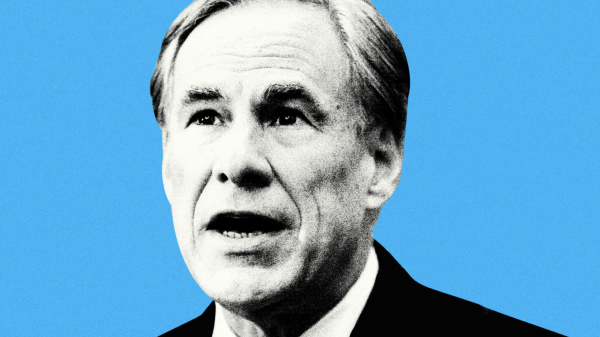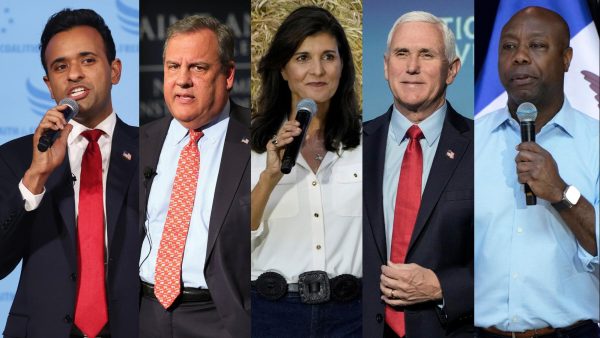The TikTok Saga
November 2, 2020
In November of 2017, Chinese technology conglomerate ByteDance bought Musical.ly, a video-sharing app, for around $1 billion. After merging the platform with TikTok and making it widely available on the Google Play Store and Apple App Store, the app’s popularity has since gone through the roof.
In the past year, especially during the unprecedented COVID-19 pandemic, TikTok has served as a safe haven for funny, entertaining, and, at times, educational videos. With over 33 million downloads in the Apple App Store alone—more than YouTube, Instagram, Facebook, or Snapchat—TikTok quickly made its way onto millions upon millions of devices. Now, every day, people flock to the video-sharing app to make short, three- to sixty-second TikToks of themselves. Additionally, unlike Musical.ly, the app is no longer populated with just lip-syncing and dance videos. From educators trying to show how they are teaching virtually to celebrities doing their best (or worst) dance moves to doctors and nurses documenting their daily fight against the Coronavirus, TikTok has truly evolved from the days of Musical.ly.
Nonetheless, as the popularity of the app continues to climb, so do the concerns of many political leaders and national security officials in Washington. So far, one of the main points of contention has been the fact that TikTok is owned and operated by ByteDance, a Chinese company; even though the company has established offices in California, its main headquarters is in Beijing, China. Because of ByteDance’s location and the Chinese government’s past use of technology and social media to monitor their own citizens, many U.S. security and privacy experts have questioned whether or not Beijing would be able to access—and exploit—the personal data of TikTok’s tens of millions of U.S. users. ByteDance, however, has strongly refuted any claims that it would hand data over to any foreign government, calling the allegations “baseless” and “outright false.” In recent months, the company has consistently reiterated that user data is stored in secure servers in the United States and Singapore and that they have never given any data to the Chinese government. The company even appointed Kevin Mayer, the former head of streaming services at Disney, as its CEO and spent millions lobbying U.S. lawmakers to fight allegations over its foreign ties.
To add to TikTok’s troubles, though, adults and child safety experts have also slammed the video-sharing platform for its “inappropriate” and “immoral” content. Since becoming popular with kids of all ages, many have become worried that young children are being exposed to videos that are not always age-appropriate. For example, according to an ABC News investigation, reporters found videos of teens talking about buying condoms, having sex with teachers, and drinking alcohol while underage. Moreover, according to the same investigation, the videos that ended up on top feeds often featured either “buxom teens in bikinis and crop tops” or people performing suggestive dances to the tune of profanity-filled songs.
On August 6th, 2020, U.S. President Donald Trump, at the recommendation of many congressional lawmakers and cabinet members, used powers granted to him by the International Emergency Economic Powers Act to sign an executive order aimed at TikTok and WeChat, another Chinese-based chat platform. The order would forcibly stop all transactions between U.S. companies, like Apple and Google, and TikTok in forty-five days. In essence, if ByteDance did not sell the U.S. portion of the app, users would no longer be able to download the app from app stores, and those already with the app wouldn’t be able to get updates and patches (potentially exposing the platform to hackers and glitches). President Trump had effectively laid out the law of the land for the popular video-sharing app: get sold to a U.S.-based company or get banned.
Soon after the potential ban was revealed, ByteDance began looking into potential suitors to take over its U.S. operations—all while still refuting the government’s security concerns and citing the lack of evidence to substantiate the allegations that TikTok would hand data over to Beijing. In early August, Microsoft said it was bidding to buy TikTok. Soon after, Walmart announced it was teaming up with Microsoft to buy the social media app. Oracle later joined the fray and began talks to purchase TikTok. However, Microsoft ended its bid in mid-September after confirming that ByteDance would not sell its U.S. operations to the American tech giant. That announcement left Oracle and Walmart in the race for TikTok, and, on September 19th, it was made public that the two would be teaming up to take over the company’s U.S. operations. As part of the deal, TikTok would be rebranded as “TikTok Global.” Oracle, being TikTok’s “trusted tech partner”, would own 12.5% of the new company and help with managing user data; Walmart would own 7.5%.
While many pundits criticized the deal for “not doing enough” and still leaving ByteDance with majority ownership, President Trump responded positively to the agreement, saying that he had “given the deal [his blessing]” and “approved [it] in concept.” Even after it was announced, though, nothing was official and Beijing still had not approved of ByteDance selling part of TikTok. Seeing that nothing was going to be set in stone before September 28th, the date the ban was to go into effect, TikTok filed a last-minute injunction request in the United States District Court of Columbia to halt the looming shutdown.
At around 8:00 pm on September 27th, 2020, hours before the ban was supposed to go into effect at midnight, U.S. District Judge Carl J. Nichols extended a lifeline to TikTok and granted a preliminary injunction for the piece of the ban that would stop all app store downloads on the 28th.
Now, we wait. It is expected that the Department of Justice will file an appeal to overturn Judge Nichols’ injunction and continue pressing TikTok’s ban in the United States. While it does so, Oracle, Walmart, and TikTok are planning to continue working with the Commerce Department to reach a definitive agreement on the transition and put the whole saga to rest. Looming above everything, though, is the part of President Trump’s executive order that sets November 12th as the final deadline for TikTok to officially spin off its U.S. operation to an American company—or face possible extinction in the country. Nicholas notably rejected ByteDance’s request to extend this date in his September 27th ruling.
1) https://www.oberlo.com/blog/tiktok-statistics
3) https://www.vox.com/culture/2018/12/10/18129126/tiktok-app-musically-meme-cringe
4) https://fortune.com/2020/07/10/tiktok-ban-trump-us-india-hong-kong/
5) https://www.distractify.com/p/what-countries-have-banned-tiktok
6) https://www.goodmorningamerica.com/living/story/young-kids-mature-content-tiktok-heres-safe-66366182
7) https://www.ft.com/content/4049b902-53b7-46d6-b9f5-69d076bc5d23
8) https://www.cnet.com/news/tiktok-oracle-deal-and-a-potential-us-ban-everything-you-need-to-know/
9) https://techcrunch.com/2020/09/27/trump-tiktok-decision/
10) https://www.cnbc.com/2020/09/25/tiktok-deal-timeline-the-latest-in-the-messy-saga-as-ban-looms.html


